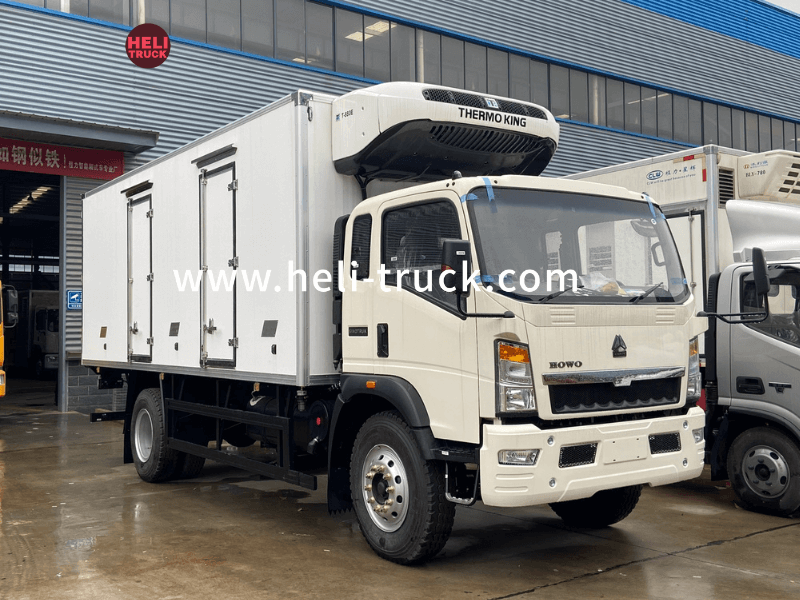Introduction
Urban waste management is a critical issue that cities around the world face on a daily basis. With increasing population density and consumption levels, the generation of waste has been on the rise, posing serious environmental and health challenges. In this context, the use of garbage compactor trucks has emerged as a crucial tool in efficiently collecting and managing urban waste. This article explores the significance of garbage compactor trucks in urban waste management, their working mechanism, types, benefits, challenges, and future prospects.
Importance of Urban Waste Management
Urban waste management is essential for maintaining public health, sanitation, and environmental sustainability in urban areas. Improper waste disposal can lead to pollution of air, water, and soil, resulting in various health hazards for the residents. In addition, unmanaged waste can attract pests and vermin, causing further health risks. Effective waste management is also crucial for reducing greenhouse gas emissions and promoting a circular economy by recycling and reusing valuable resources.
Garbage Compactor Trucks: An Overview
Garbage compactor trucks, also known as compactors or compaction trucks, are specialized vehicles designed for collecting, compacting, and transporting waste materials from urban areas to disposal sites. These trucks play a vital role in streamlining the waste collection process, reducing the volume of waste, and optimizing the use of storage space in landfills or recycling facilities. Garbage compactor trucks are equipped with hydraulic systems that compress the waste to maximize the load capacity and minimize the number of trips required for disposal.
Working Mechanism of Garbage Compactor Trucks
Garbage compactor trucks operate through a series of steps that involve collection, compaction, and transportation of waste materials. The process begins with waste collection bins placed along designated routes in urban areas. The compactor truck crew, consisting of drivers and waste collectors, follow predefined schedules to empty the bins and load the waste into the truck's hopper.
Once the waste is loaded into the hopper, the compaction mechanism is activated. The hydraulic system inside the compactor truck exerts pressure on the waste, compressing it into a smaller volume. This compaction process increases the truck's load capacity, allowing it to collect more waste in each trip. After compaction, the waste is securely stored in the truck's body to prevent spillage or odors during transportation.
Types of Garbage Compactor Trucks
There are several types of garbage compactor trucks designed to meet the diverse needs of urban waste management systems. The most common types include:
1. Rear Loader Compactor Trucks: These trucks have a compaction mechanism located at the rear of the vehicle. Waste collectors manually load the waste into the hopper, which is then compacted and stored in the body of the truck.
2. Front Loader Compactor Trucks: Front loader trucks feature a hydraulic lifting mechanism at the front of the vehicle to pick up and empty large waste containers. These trucks are commonly used for commercial and industrial waste collection.
3. Side Loader Compactor Trucks: Side loader trucks have a compaction mechanism on one side of the vehicle, allowing waste collectors to load the waste from curbside bins. These trucks are suitable for narrow streets and residential areas.
Benefits of Garbage Compactor Trucks
Garbage compactor trucks offer numerous benefits for urban waste management systems, including:
1. Increased Efficiency: Compacting waste reduces the volume, enabling the truck to collect more waste in fewer trips, thereby saving time and fuel costs.
2. Improved Garbage truck waste transfer : Compacted waste is securely stored inside the truck, minimizing spillage and odors that can attract pests and pose health risks to residents.
3. Environmental Sustainability: By optimizing waste collection and transportation, garbage compactor trucks help reduce carbon emissions and promote sustainable waste management practices.

4. Space Optimization: Compacted waste occupies less storage space in landfills or recycling facilities, extending their lifespan and reducing the need for additional disposal sites.
Challenges in Using Garbage Compactor Trucks
Despite their numerous benefits, garbage compactor trucks also face several challenges in urban waste management:
1. Maintenance Costs: The hydraulic systems and compaction mechanisms in garbage trucks require regular maintenance and repairs, increasing operational costs for waste management authorities.
2. Limited Capacity: The capacity of compactor trucks is limited by their size and weight restrictions, leading to frequent trips for waste collection in densely populated urban areas.
3. Traffic Congestion: Garbage trucks navigating through narrow streets and congested urban areas can contribute to traffic congestion and delays in waste collection.
Future Prospects of Garbage Compactor Trucks
To address the evolving needs of urban waste management, several innovations and developments are being explored in the design and operation of garbage compactor trucks:
1. Smart Waste Management: Integration of sensors, GPS tracking, and route optimization technologies in garbage compactor trucks can enhance operational efficiency and real-time monitoring of waste collection activities.
2. Sustainable Materials: The use of lightweight and durable materials in the construction of garbage compactor trucks can reduce fuel consumption and environmental impact while increasing load capacity.
3. Automation and Robotics: The deployment of automated collection systems and robotic arms in garbage compactor trucks can improve waste collection efficiency and reduce manual labor requirements for waste collectors.
Conclusion
Garbage compactor trucks play a vital role in urban waste management by streamlining the waste collection process, reducing the volume of waste, and promoting environmental sustainability. These specialized vehicles offer numerous benefits in terms of efficiency, hygiene, and space optimization, despite facing challenges such as maintenance costs and limited capacity. With ongoing innovations and advancements in waste management technologies, garbage compactor trucks are poised to play an even greater role in shaping the future of urban waste management systems worldwide.
